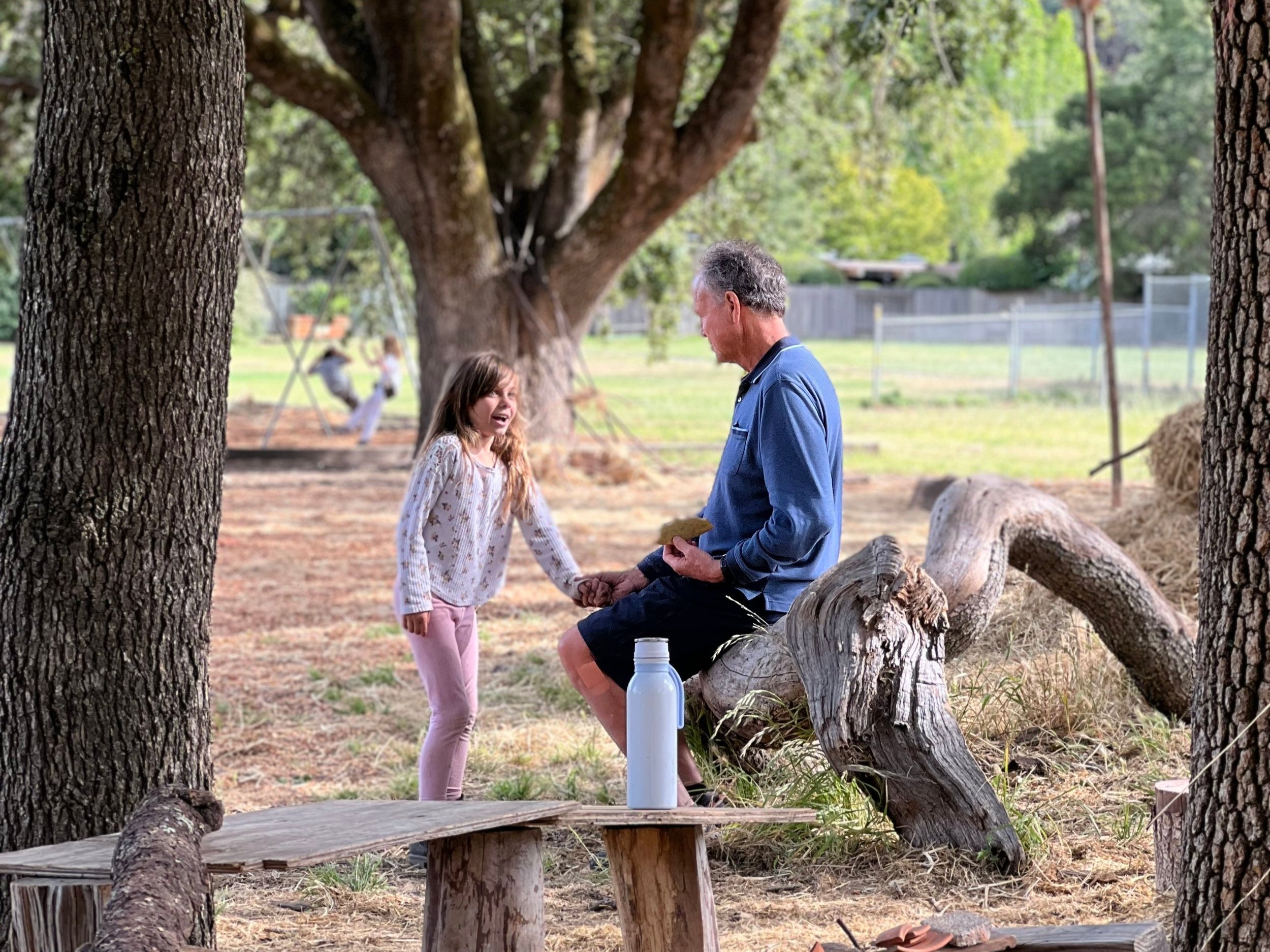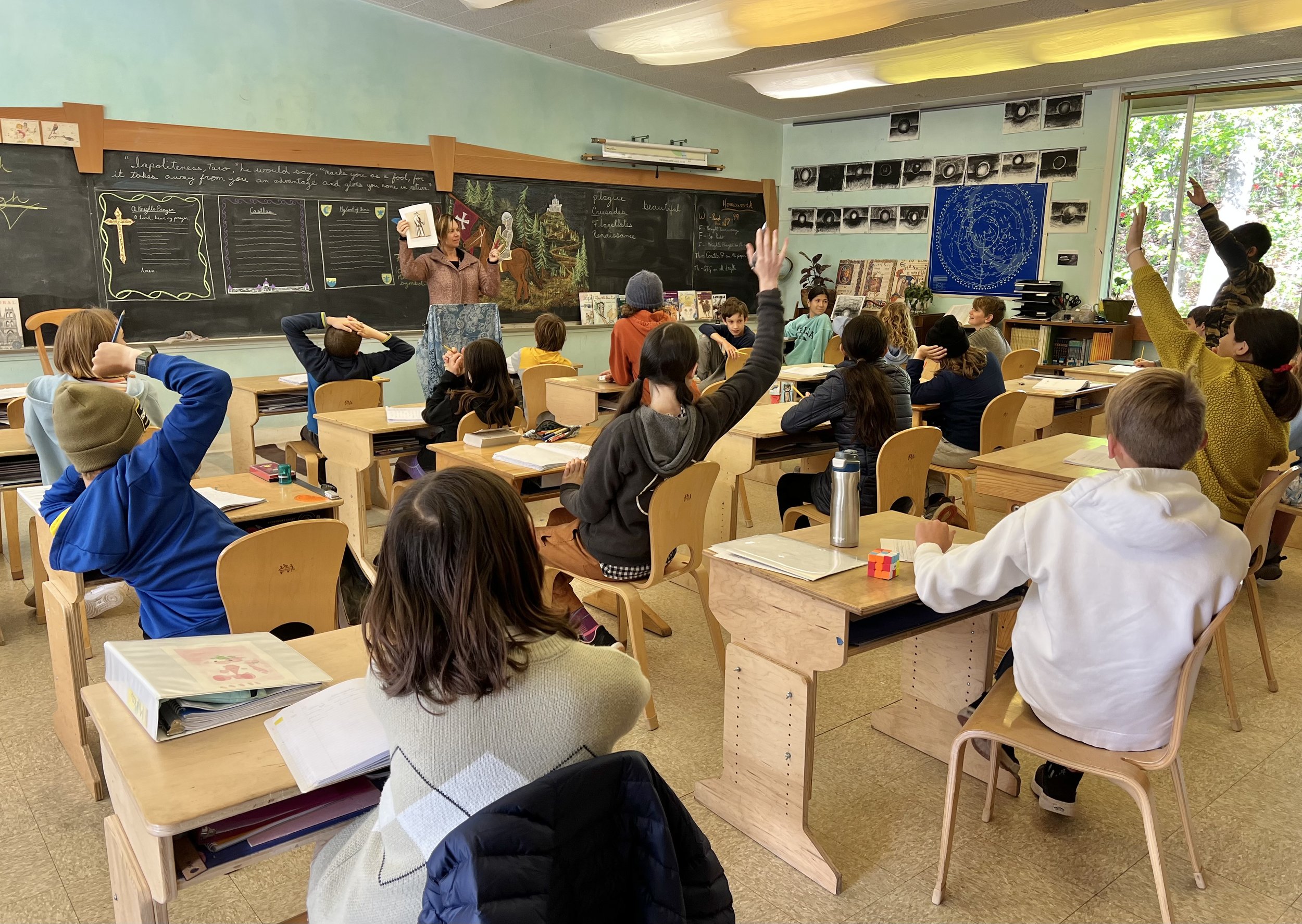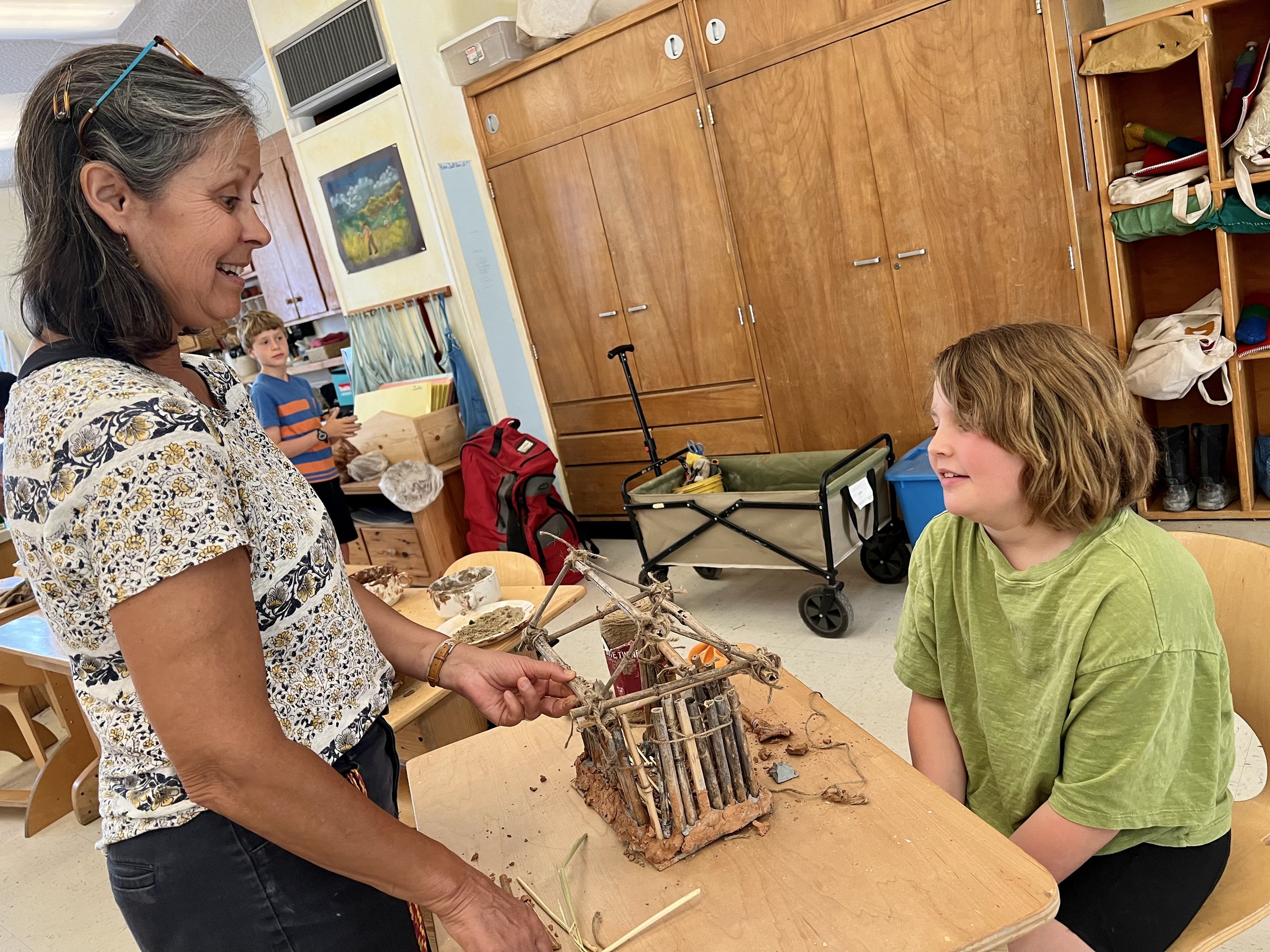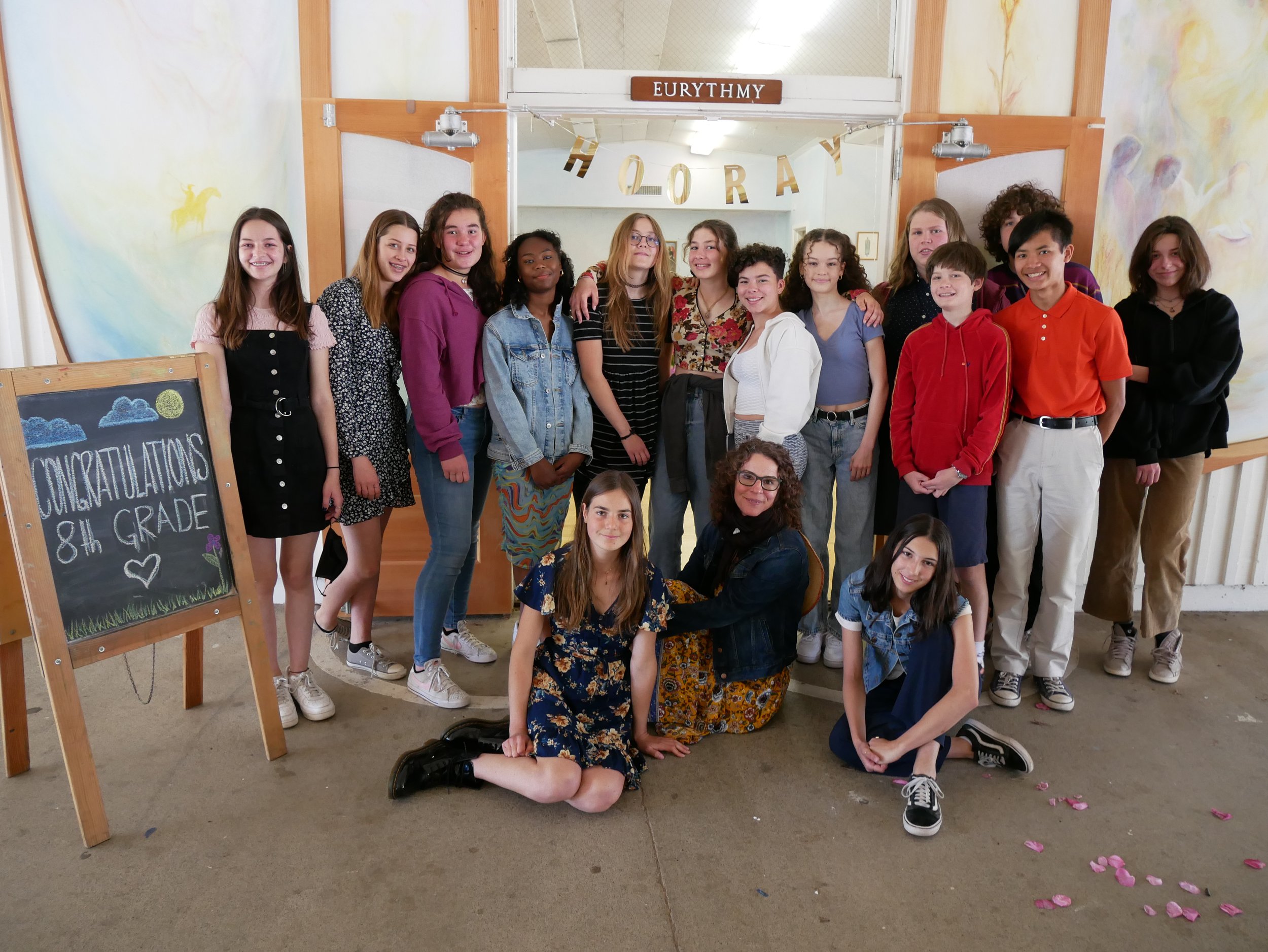Innovation in Teaching: Looping
The Waldorf approach to building teacher-student relationships
There is no substitute for true human connection. We know it intuitively, but there’s also a wide body of research that shows children learn best and feel most confident when they are seen and understood by their teachers. Multi-year connections create a sense of trust and stability that enhances student confidence and engagement.That’s one of the reasons that meaningful relationships are at the heart of every classroom at Marin Waldorf School.
When it comes to building strong teacher-students relationships, one of the most important innovations in Waldorf education is looping. Looping is when a teacher stays with the same class for multiple years or grade levels. In some cases, Waldorf class teachers will stay with the same group of students from 1st to 4th grade, or even all the way from 1st to 8th grades! Our school’s specialty teachers also work with the same children year after year, creating the same sense of support and continuity in subject classes like music, handwork, gardening, orchestra, physical education, woodworking, and middle school math.
Building strong relationships takes time. Marin Waldorf School teachers and students have the opportunity to build strong and trusting relationships, creating an environment in which each student is individually seen, supported, and appropriately challenged. For Waldorf teachers, spending multiple years with the same class allows them to develop an in-depth understanding of each student's strengths, challenges, and unique learning style.
Looping also promotes meaningful collaboration between teachers and parents, facilitating open communication and compassionate conflict resolution as needed.
The Class of 2021 with Ms. Terziev (center), who led the class from 2nd grade through 8th grade graduation.
Though it’s long been practiced in Waldorf schools, looping has been getting a boost in the mainstream lately. The concept has been the subject of widespread research and opinion, especially following the pandemic, when many teachers chose to stay with their classes for a second year after schools were closed in 2020.
The practice continues to gain traction and supporters. In October 2023, contributing opinion writer Adam Grant wrote a piece about looping in the New York Times. A proponent of the practice, he argued:
With more time to get to know each student personally, teachers gain a deeper grasp of the kids’ strengths and challenges. The teachers have more opportunities to tailor their instructional and emotional support to help all the students in the class reach their potential. They’re able to identify growth not only in peaks reached, but also in obstacles overcome. The nuanced knowledge they acquire about each student isn’t lost in the handoff to the next year’s teacher.
A 2015 study by Stanford University of Alice Birney, a Waldorf-Inspired School in Sacramento City Unified School District, reached similar conclusions about the power of looping. The researchers wrote:
When teachers have the luxury of time, as well as the primary responsibility for their student’s education, they are not under pressure to prepare students to a certain level of proficiency at an arbitrary point in time in order to hand off to their next teacher. Teachers can be responsive to the students’ needs, readiness for new learning, and skill development in designing their instruction.
The transformative power of looping extends beyond the confines of a traditional classroom, shaping a community of learners who embrace curiosity, resilience, and supportive connections.
As educators, we strive to teach children to love learning. By fostering an environment where every student feels seen, understood, and safe, our teachers instill the confidence to thrive, encouraging the development of individual learning styles and interests. When you visit a Marin Waldorf School classroom, you can quickly see that our students are eager learners, resilient in the face of challenges, and secure in the knowledge that they are fully supported by their teachers.



